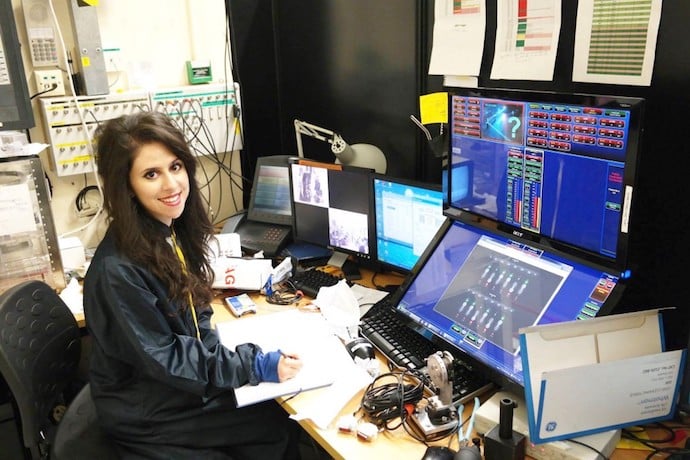A career in communicating science can start at any age. For some it starts after years of experience in the field, others during their PhD. For Meriame Berboucha, it started while she was an undergrad.
Berboucha is currently a masters student at Imperial College in London, but started her science communication blog as an undergraduate studying physics. She was inspired to start it after she was a part of an Institute of Physics (IOP) science communication competition.

“Since then, I’ve wanted to share what it’s like to be a woman in physics and share snippets of my life as a physicist in order to inspire other women to get into the field and to realize that physics is for both guys and girls,” Berboucha said.
Now Berboucha has moved beyond just her blog. She is now a contributor to Forbes. Writing five articles a month, she is getting the eyes of thousands on her coverage of science and technology. Although the transition was not easy, she has enjoyed the challenge.
“When I started writing for Forbes I had to learn how to write like a journalist which is completing different to writing a personal blog,” Berboucha said. “I had to concentrate on the facts rather than opinions and feelings so it was cool to write about science for the sake of science. It was a nice change and I loved reading other articles so that I could learn about the best ways of writing science articles.”
Science communication is more than writing though, and Berboucha has embraced it in all forms. She is also a radio producer for the Science Mixtape show (which airs every Saturday morning from 10–11 am on Soho Radio). Science Mixtape is all about interviewing different scientists every week to learn more about their science, the scientist as a person and their musical tastes.

“I think it’s a great way to get an insight into a particular field of science and I find it fascinating meeting a different kind of scientist or mathematician every week and learning about their cool bit of science.”
So where did all of this scientific curiosity originate from? Well, Berboucha grew up in an environment encouraging of problem solving and figuring things out. Her father was a handy man who let her jump and help take apart electrical appliances. Her mother had a physics background and is a physics technician at a school, giving her a female role model in her field. However, when she was in school, she did start to run into a bit of social resistance.
“I only noticed that there were stereotypes when I got into school and my friends would say things like ‘why are you taking physics, you’re clever you should do something like medicine’. But I stuck to what I wanted to do and I’m so glad I didn’t let comments like those change my mind about doing a physics degree and now I’m graduating.”

She has continued to pursue her passion of physics since then and is particularly interested in lasers. She first got into the field through a summer placement in her first year of university where she was working with the plasma group at Imperial College.
“I was working on a particular part of physics known as Laser Wakefield Acceleration which is where we can accelerate charged particles in a plasma using a laser,” Berboucha said. “From there, I realized how lasers, which are cool in themselves, can be used to find out some really cool stuff about the world we live in but can also be used to for imaging which is awesome.”
As she continues through her scientific journey, she is excited to continue to share it through Instagram, Twitter, writing and more. She has been inspired by the women their experiences in science and hopes to do the same for others.
“I think science communication is vital in getting the younger generation interested in science,” Berboucha said. “I remember at school when I was younger I used to think that physicists were guys with glasses who just solved equations all day. But now I’m training to be a physicist and I’ll be working with the HUGE x-ray free electron laser at SLAC for my masters project next year which is super exciting and I cannot wait.”

Learn More
Meriame Berboucha
http://www.meriameberboucha.weebly.com/
Meriame Berboucha’s science communication blog
http://www.meriameberboucha.blogspot.co.uk/

